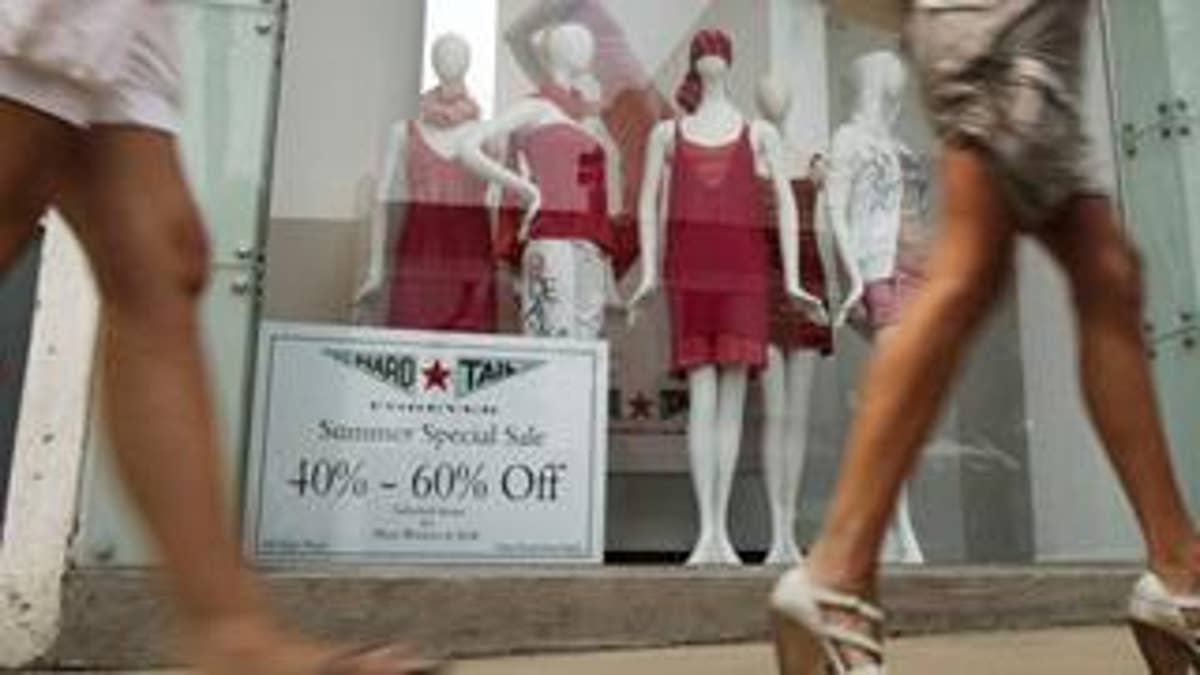
Surging productivity. A drop in the unemployment rate for the first time in 15 months. And a forecast of growth in gross domestic product this quarter.
What recession?
That's what many economists are saying as they point to those signs as evidence that the longest recession since the Great Depression has ended.
"Most economists who are saying the recession ended, what they mean is the economy will grow in the third quarter," Chris Varvares, president of Macroeconomic Advisers, told FOXNews.com.
But other data suggest those declarations may be premature.
First, before it can be determined whether a recession has ended, it's important to note how to define a recovery. According to the Economic Policy Institute, the economy must grow at least 3 to 3.5 percent to keep unemployment from rising and 4 to 4.5 percent for unemployment to drop 0.5 percent.
The National Bureau of Economic Research, the group charged with making the official calls, says on its Web site that it marks recovery from the date that it sees the economy hitting rock bottom. It looks at that trough through the lens of employment, personal income and growth in the gross domestic product.
However, the bureau doesn't make the call on a recovery until long after it began. For instance, the bureau did not announce the November 2001 end of recession until July 2003.
In July 2003, it wrote that the NBER did not conclude that in economic conditions since November 2001 "have been favorable or that the economy has returned to operating at normal capacity. Rather, the committee determined only that the recession ended and a recovery began in that month."
The bureau's silence hasn't stopped economists from weighing in. Many believe the current recession is on the verge of ending. If the economy starts to grow in the second half of this year, companies are expected to switch from layoffs and trimming workers' hours to boosting employment as demand for their products increases.
Evidence showing that the recession is easing continued to emerge Friday. The Federal Reserve said production from the nation's factories, mines and utilities rose more than expected in July, with the first gain in nine months driven by increased output from auto companies.
It marks only the second gain in industrial production since the downturn began in December 2007.
The government also reported this month that the overall economy, as measured by the GDP, shrank at an annual rate of 1 percent in the second quarter, far less severe than the 6.4 percent decline in the first quarter and a 5.4 percent decline in the fourth quarter of 2008.
Varvares said his firm is forecasting economic growth of between 2.5 and 3 percent for the second half of the year.
"If that turns out to be right, the recession is over," he said.
But other signs point to the possibility that the economy is headed for a jobless recovery.
Although the unemployment rate, perhaps the biggest sign of recovery, fell last month from 9.5 percent to 9.4 percent, it was a statistical fluke. It fell in part because 422,000 people, discouraged with their job prospects, left the labor force. If they're included, the actual percentage of Americans unemployed is really 10.7 percent. And the unemployment rate is expected to remain elevated well into next year.
On top of that, personal income fell 1.3 percent in June, the steepest drop in more than four years and more than the 1 percent economists had predicted. Incomes rose by the same amount in May, but only because of one-time payments from the government via income tax returns.
Another troubling sign is the personal savings rate. It has soared during the recession, which can be good in the long term, but can also slow the economy because consumer spending accounts for about 70 percent of economic activity.
That rate fell to 4.6 percent in June, after jumping to 6.2 percent in May, which was the highest since February 1995. The rate dropped as low as 1 percent last year.
Consumer prices were flat in July as energy costs retreated following a big surge in June. Over the past 12 months, prices dropped the most in nearly six decades as the recession and lower energy costs kept a lid on inflation.
Prices fell 2.1 percent over the past 12 months, the biggest annual decline since a similar drop in the period ending in January 1950. Most the past year's decline reflects energy prices falling 28.1 percent since peaking in July 2008.
Some economists have expressed concerns that the economy could be headed toward a dangerous period of falling prices, something the United States. has not experienced since the Great Depression of the 1930s.
Varvares called the overall data a "mixed bag."
"When the economy is growing at 3 percent, everything has a positive tone," he said. "When the economy is shrinking by 6 percent, everything has a negative tone."
The Associated Press contributed to this report.




